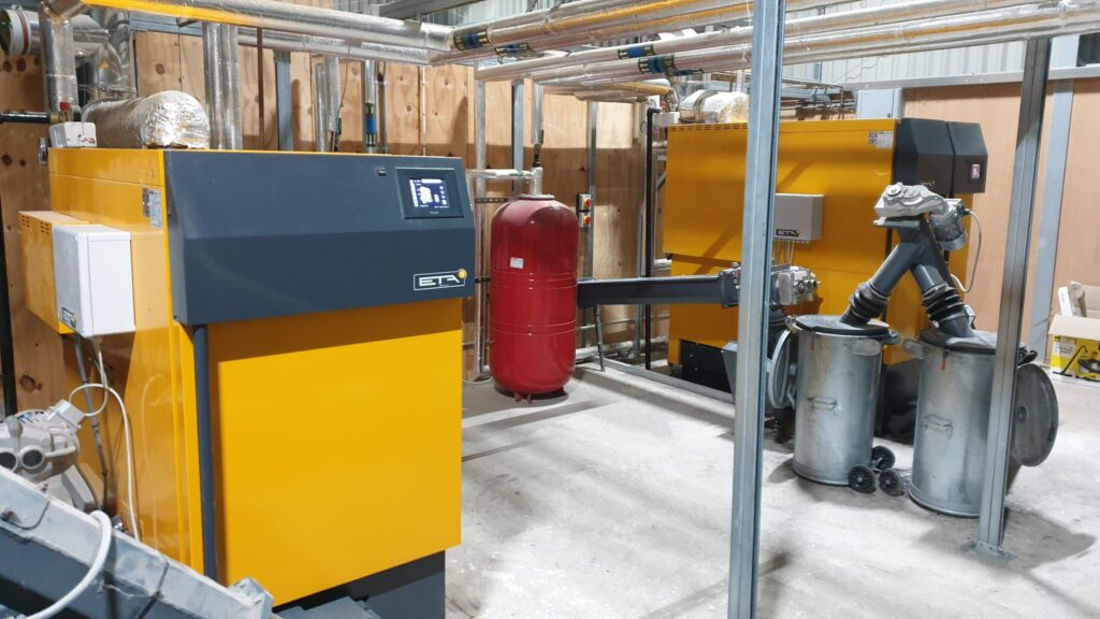Introduction to Biomass Boilers
Biomass boilers have emerged as a popular alternative to traditional heating systems due to their eco-friendliness and potential cost savings. As fossil fuel reserves dwindle and environmental concerns grow, more households and businesses are turning to renewable energy sources. Biomass boilers, which utilise organic materials as fuel, offer an efficient and sustainable way to heat your home or office.
In this article, we will explore the various aspects of biomass boilers, providing you with comprehensive insights into their operation, benefits, and considerations. By the end, you’ll be equipped with the knowledge to decide if a biomass boiler is the right choice for your heating needs. Whether you’re motivated by environmental responsibility or cost-effectiveness, understanding biomass boilers could be your first step towards a greener future.
The information provided here is designed to guide you through the complexities of biomass boilers, helping you make an informed decision. From the basics of biomass to the intricacies of installation and maintenance, this guide covers all the essential elements.
Understanding Biomass: What is it?
Biomass refers to organic material that comes from plants and animals, and it can be used as a renewable energy source. It includes a wide range of materials such as wood, agricultural residues, and even certain types of waste. When burned or processed, biomass releases energy that can be harnessed for heating, electricity, and other applications.
The use of biomass as a fuel source is not new; it has been used for centuries in the form of wood burning. However, modern technology allows for more efficient and cleaner combustion processes. The materials used in biomass boilers are often by-products of agricultural or forestry processes, making them a sustainable choice.
Understanding the types of biomass available is crucial when considering a biomass boiler. Common types include wood pellets, wood chips, and logs. Each type has its own benefits and suitability depending on your specific heating requirements and the availability of resources in your region.
How Biomass Boilers Work
Biomass boilers operate by burning organic materials to produce heat, which is then used to warm water. This heated water is circulated through your heating system to radiators or underfloor heating, providing warmth to your space. The process is similar to traditional boilers, but the fuel source is renewable and often more sustainable.
The efficiency of a biomass boiler depends on the type of biomass used and the system’s design. Modern biomass boilers are equipped with technology to ensure optimal combustion, reducing emissions and increasing energy efficiency. Some systems even include automated fuel feeding mechanisms, which minimise the need for manual intervention.
Understanding the mechanics of how biomass boilers work can help you appreciate their benefits and limitations. While they provide an eco-friendly heating solution, they require careful consideration of fuel storage and maintenance to ensure consistent performance.
Advantages of Using Biomass Boilers
One of the most significant advantages of biomass boilers is their environmental impact. By using renewable resources, they significantly reduce your carbon footprint compared to fossil fuel-based systems. Biomass is considered carbon-neutral because the carbon dioxide released during combustion is offset by the carbon absorbed by plants during their growth.
Cost savings are another compelling reason to consider biomass boilers. Although the initial installation costs can be higher than traditional systems, the ongoing fuel costs are often lower, especially if you have access to local biomass resources. Over time, this can lead to substantial savings on your energy bills.
Additionally, biomass boilers can increase your energy independence. By reducing reliance on imported fuels, you are less vulnerable to fluctuations in energy prices and can contribute to local energy sustainability initiatives. This not only benefits you financially but also supports the broader community by promoting local resource use.
Environmental Impact of Biomass Boilers
The environmental benefits of biomass boilers extend beyond reduced carbon emissions. By utilising waste materials from agriculture and forestry, they help reduce landfill waste and promote the recycling of organic materials. This contributes to a more sustainable ecosystem and supports a circular economy.
However, it’s essential to consider the entire lifecycle of biomass production and use. Sustainable sourcing of biomass is critical to ensure that the environmental benefits are not offset by deforestation or other negative impacts. When sourced responsibly, biomass can be a truly sustainable energy solution.
To maximise the environmental benefits, it’s important to choose certified biomass fuels and ensure your boiler is properly maintained. Regular maintenance and efficient operation reduce emissions and ensure that your system runs at peak performance, further enhancing its green credentials.
Cost Considerations for Biomass Boilers
When considering a biomass boiler, it’s important to evaluate both the initial investment and the long-term financial implications. The upfront cost of purchasing and installing a biomass boiler can be higher than conventional systems. However, this is often offset by lower running costs and potential government incentives.
Operational costs can vary depending on the type of biomass fuel used and its availability in your area. Wood pellets are typically more expensive than logs or wood chips, but they offer convenience and consistent quality. It’s crucial to assess your specific heating needs and local fuel options to determine the most cost-effective solution.
In addition to fuel costs, maintenance expenses should be considered. Biomass boilers require regular servicing to ensure optimal performance and longevity. However, many users find that the overall savings in fuel costs, combined with possible incentives, make biomass boilers a financially attractive option in the long term.
Comparing Biomass Boilers to Traditional Heating Systems
When comparing biomass boilers to conventional heating systems, several factors come into play. Traditional systems, such as gas or oil boilers, often have lower initial costs and are widely available. However, they rely on finite fossil fuels, which contribute to greenhouse gas emissions and are subject to market volatility.
Biomass boilers offer a renewable alternative with the potential for lower operating costs and reduced environmental impact. While they may require a larger initial investment, the benefits of using a sustainable fuel source and the possibility of financial incentives make them an attractive option for many.
Ultimately, the decision between a biomass boiler and a traditional system depends on your priorities. If environmental sustainability and long-term savings are important to you, a biomass boiler could be the right choice. However, if upfront costs and convenience are your main concerns, a conventional system might be more suitable.
Installation and Maintenance of Biomass Boilers
Installing a biomass boiler involves several considerations to ensure it meets your specific heating needs. The system requires adequate space for the boiler itself and for fuel storage. It’s important to have a qualified installer assess your property to determine the best setup and location for the boiler and storage facilities.
Maintenance is a crucial aspect of owning a biomass boiler. Regular cleaning and servicing are necessary to ensure efficient operation and longevity. This includes cleaning the flue, inspecting the combustion chamber, and checking for any blockages or wear. Many manufacturers offer maintenance packages or recommend certified professionals to carry out these tasks.
Proper installation and maintenance not only extend the lifespan of your biomass boiler but also optimise its performance. By keeping your system in good working order, you can ensure it operates efficiently, reducing fuel consumption and emissions.
Government Incentives and Grants for Biomass Boilers
Governments around the world are recognising the environmental benefits of renewable energy and often provide incentives to encourage the adoption of biomass boilers. These incentives can significantly reduce the initial cost of installation, making biomass systems more accessible to a wider audience.
In the UK, for example, the Renewable Heat Incentive (RHI) offers financial support to individuals and businesses that install renewable heating systems, including biomass boilers. This scheme provides payments over a set period based on the amount of renewable heat generated, helping to offset installation costs.
Before installing a biomass boiler, it’s worth researching the available incentives and biomass boilers grants in your area. These programmes can vary by region and may have specific eligibility criteria. Taking advantage of these opportunities can make the transition to a biomass system more financially viable.
Conclusion: Is a Biomass Boiler Right for You?
Deciding whether a biomass boiler is right for you involves weighing the environmental benefits, cost implications, and practical considerations. If you’re committed to reducing your carbon footprint and are willing to invest in a renewable energy solution, a biomass boiler can be an excellent choice.
Consider your access to biomass fuels and the availability of local resources. If these are readily accessible, you could benefit from reduced fuel costs and increased energy independence. Additionally, government incentives can make the financial aspect more attractive, further enhancing the appeal of biomass boilers.
Ultimately, the decision should align with your values and long-term goals. Whether you’re motivated by sustainability, cost savings, or energy security, a biomass boiler offers a viable path towards a greener and more efficient heating solution.
If you’re considering a switch to renewable energy, explore the benefits of biomass boilers today. Contact a trusted biomass boiler servicing company in your area or contact Proadvance from Reading, Berkshire to learn more about how you can benefit from this sustainable heating solution!




